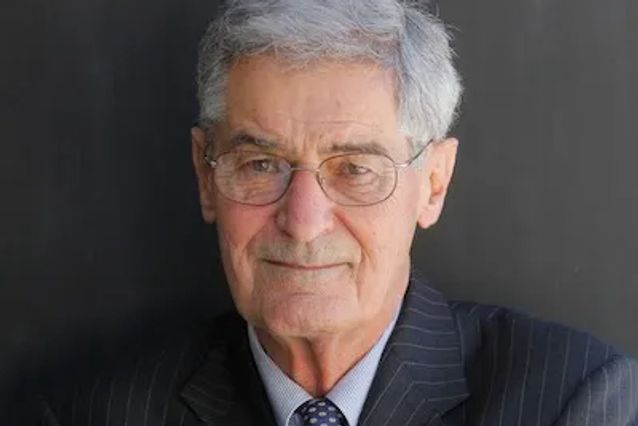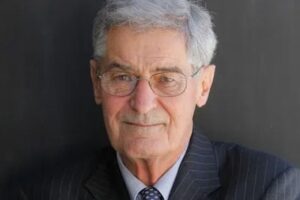

Robert Lucas
Keynesianism had taken some lumps by the early 1970s, but it was still the dominant school in macroeconomics. Then Robert E. Lucas Jr. came along. The longtime University of Chicago economist died Monday at 85.
In a famous 1972 article, Lucas made a crucial observation. He noted that virtually every macroeconomic model erroneously assumed, implicitly or explicitly, that government officials who made economic policy could essentially fool people into making irrational decisions. Microeconomics assumed people were rational. Why shouldn’t macroeconomics make the same assumption? For this and other insights he was awarded the 1995 Nobel Prize in Economics.
This is from David R. Henderson, “Robert E. Lucas Brought Rationality to Macroeconomics,” Wall Street Journal, May 15, 2023. (May 16 print edition.)
I learned yesterday morning from John Cochrane that Bob Lucas died yesterday. I approached my editor at the WSJ and he gave me the green light. This is the quickest article I’ve ever written: just under one hour.
I liked the way the editor changed my opening paragraph and my closing paragraph. I still like my title though: “The Accomplishments of a Towering Yet Humble Economist.”
My favorite parts are near the end about his insight that development economics is growth economics and his famous quote, which I can quote because it’s out there in the literature:
Is there some action a government of India could take that would lead the Indian economy to grow like Indonesia’s or Egypt’s? If so, what,exactly? If not, what is it about the “nature of India” that makes it so? The consequences for human welfare involved in questions like these are simply staggering: Once one starts to think about them, it is hard to think about anything else.
I’ll post the whole thing when 30 days are up.

READER COMMENTS
Ohad
May 16 2023 at 10:01am
I first read the news on twitter, but suspected it was fake. So the first thing I did was to open WSJ and to look for your column. Wasn’t disappointed.
Jonathan Lipow
May 18 2023 at 6:25pm
Loved the WSJ piece! But I disagree with one aspect – I don’t think Lucas was the first to bring considerations of rational behavior into macro. I am not certain, but I think Friedman – with “The Theory of the Consumption Function” – really started the examination of what we now call the micro foundations of macroeconomics. I think Lucas DID show how (rational) expectations mattered – or in other words, how the static models where missing something when you added dynamics to the mix – and a few latter economists really tied their work together – Bobby Hall with his RE-PIH paper and Robert Barro with his paper on fiscal shocks. The consensus – as I understand it – is that economies behave just like Keynes predicted when subjected to unexpected fiscal or monetary shocks. But deliberate (and predictable) policy interventions – while not as totally ineffective as Friedman (in his case, only fiscal) or Lucas predicted, are a LOT less impactful than Keynesians believed.
Some of my own work was inspired by Lucas’ work on tax smoothing, which led him to advocate something somewhat similar to Keynesian fiscal policy for reasons of tax efficiency.
Jack
May 24 2023 at 3:02pm
I didn’t attend Chicago, but as a PhD student I was lucky to listen to him in a seminar. His presentation style was crystal clear and conversational. He answered questions in a friendly and inquisitive manner. None of that “proof by intimidation” stuff that some people do.
One shouldn’t underestimate how difficult it was to convince the profession: The 1972 paper was turned down at top outlets like the AER because the referees just didn’t get it. Lucas approached a classic problem with very novel tools. Fortunately Karl Shell, who edited JET, did get it.
A story from Robert Barro (from his great book). When Barro was at Chicago, he had a sign on his door that read “No smoking except for Bob Lucas.” In those days smoking in the office was permitted. Barro wouldn’t tolerate smoke from visitors except if it was to talk with Lucas — he said it was worth it! Of course he tells the story better in his book.
Comments are closed.